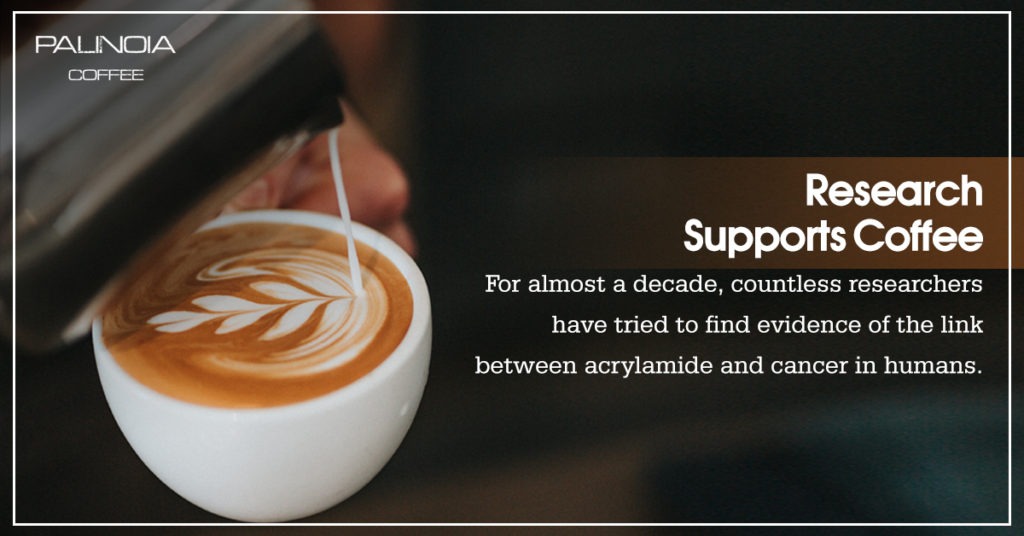Millions of people start their day with a cup of coffee. It’s what we use to completely wake ourselves up and fuel our day. For decades, coffee drinkers have had to battle the stigma caused by claims that coffee is detrimental to health, especially if one drinks too many cups of it per day.
A recent court battle in California over making coffee manufacturers and roasters attack cancer warnings on their labels have brought the debate about whether coffee is bad for the health or not back to the limelight. Many health enthusiasts had their eyes on the case hoping it would settle the argument once and for all. And hopefully, the results were decisive enough to satisfy everyone.
Experts came together and said that not only did most of the science indicate that there is no concrete evidence that coffee can cause cancer, research even showed that coffee might even prevent the development of several forms of cancer.
Harvard University’s T.H. Chan School of Public Health Chairman Dr Frank Hu said in a public statement that the testimonies of the experts had a very clear message – drinking coffee does not increase the risk of major diseases such as cancer, diabetes, cardiovascular conditions, etc. in the short-term or long-term.
Cancer Warning Labels
The debate about the supposed health risks of coffee was revived in the last quarter of 2018 after a Los Angeles-based judge ruled that all food products that contain carcinogenic substances, no matter how small of a quantity, should reflect so on their labels. This led to anti-coffee groups to cite the currently ongoing eight-year court case regarding the hazards of the chemical acrylamide.
Acrylamide is a chemical produced by coffee beans during the roasting process. It is also commonly found in other roasted or fried foods such as French fries, bread toast, potato chips, and even breakfast cereals. It is also present in cigarette smoke.
At Palinoia Coffee we understand this concern which is why we roast for health so we make sure we have the lowest Acrylamide levels possible.

Research Supports Coffee
For almost a decade, countless researchers have tried to find evidence of the link between acrylamide and cancer in humans. Studies by the U.S. National Cancer Institute have found no such evidence. The World Health Organization’s International Agency for Research on Cancer also found no such evidence even after reviewing more than 1,000 human and animal studies. In an official statement back in 2016, the organization’s representatives stated that they “found no conclusive evidence for a carcinogenic effect of drinking coffee.”
Dr Frank Hu claims that the California judge seems to have been misled in making the ruling that requires coffee to be labelled as a cancer risk. “The California judge’s decision to label coffee as a cancer risk is really inconsistent with the scientific literature,” Hu added. “It’s very misleading and has already caused a huge amount of confusion in the general public. The health outcomes have been remarkably consistent.” Hu is confident that the ongoing appeals will be able to overturn the ruling.
Part of a Healthy Diet
Each passing day, it seems that more and more experts are blasting the California ruling to be the only one of its kind to require coffee to have a ‘cancer risk’ warning on its label. As a matter of fact, in 2014, the Department of Agriculture’s Dietary Guidelines for all Americans, published every five years, recommended adding three to five cups of coffee to one’s daily diet. This update was huge for coffee drinkers as it meant that the number one go-to source of nutrition advice for all Americans just claimed that up to 400 milligrams of caffeine is good for the health. Below is an excerpt of what was mentioned in the guideline.
“This guidance on coffee is informed by strong and consistent evidence showing that, in healthy adults, moderate coffee consumption is not associated with an increased risk of major chronic diseases (e.g., cancer) or premature death, especially from cardiovascular disease. However, individuals who do not consume caffeinated coffee or other caffeinated beverages are not encouraged to incorporate them into their eating pattern.”
In recent years, the coffee industry has sponsored various studies on the risks of drinking coffee on a regular basis. Surprisingly, the research led to the discovery of a myriad of benefits instead. Coffee can prevent certain cancers, slow down the development and progression of type-2 diabetes, prevent depression, increase energy, and more. Research clearly shows that coffee is good for the health. For more research-based facts about coffee, please visit Palinoia Coffee. We are committed to making the best coffee in the world readily available to the people of Australia.
